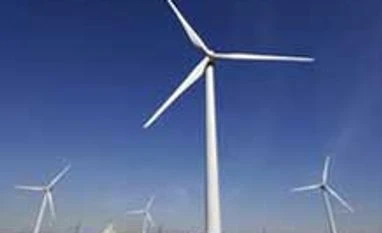The ministerial would begin with a session on C3E. This would be addressed by Elizabeth Dipuo Peters, energy minister of South Africa, and Farooq Abdullah, Indian minister for new and renewable energy. Australia, Denmark, Mexico, Norway, South Africa, Sweden, the United Arab Emirates, the UK and the US are the participants in the C3E initiative, launched by 30 women, three energy ministers and eight governments at the first Clean Energy Ministerial in the US. The initiative is aimed at advancing women’s participation in the clean energy revolution. (FOR A GREENER FUTURE)
C3E focuses on energy education and empowerment. However, programmes under this initiative do not directly benefit rural women, who find it difficult to procure fuel. “We feel C3E, in its current form, does not cover women beneficiaries of clean energy, but is more focused on women professionals,” said A K Jain, advisor, Planning Commission.
CEM, a US initiative working in parallel with the United Nations Framework Convention on Climate Change, works on 13 action-driven clean energy initiatives. India is signatory to seven of these. Last month, it joined the initiative on electric vehicles (called EVI). So far, China has joined four initiatives. However, it is neither a signatory to C3E nor EVI.
EVI aims to facilitate the deployment of 20 million electric vehicles, including plug-in hybrid electric vehicles and fuel cell vehicles, globally by 2020. Under this, national deployment targets, announcing pilot cities to promote electric vehicle demonstrations, sharing experiences and information on public investment in research & development and demonstration are encouraged. EVI also includes programmes to ensure crucial gaps in vehicle technology development are addressed.
India has been steadily moving ahead on the electric vehicle front. Last month, Mahindra & Mahindra launched the E2O, which replaced the Reva model. About half a dozen electric two-wheeler models are sold in the country.
The three-day CEM4 would see ministers hold closed-door discussions on clean energy supply and energy efficiency. Besides, there would be round-table talks on public-private partnerships in reducing costs of solar panels, acceleration of adoption of clean vehicles and the evolution of a power market in emerging economies. “The focus of the ministerial is largely technology and business,” Jain said.
He added of the 13 initiatives, four focused on energy supply and three on energy efficiency. Besides, there are six initiatives on crosscutting programmes, which include C3E and 21st Century Power Partnership, which aims to enhance large-scale deployment of energy efficiency and variable renewable energy through smart policies and programmes that leverage smart grid solutions and clean-energy technologies. With states implementing renewable energy purchase obligations for purchase of power by distribution companies, India had been trying to being the availability of renewable energy in the grid into the mainstream, Jain said.
)